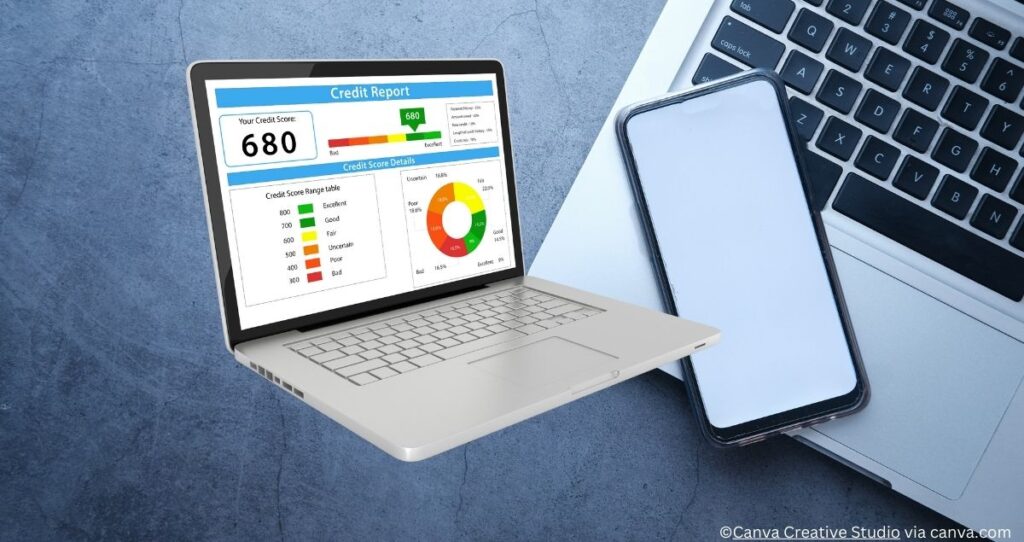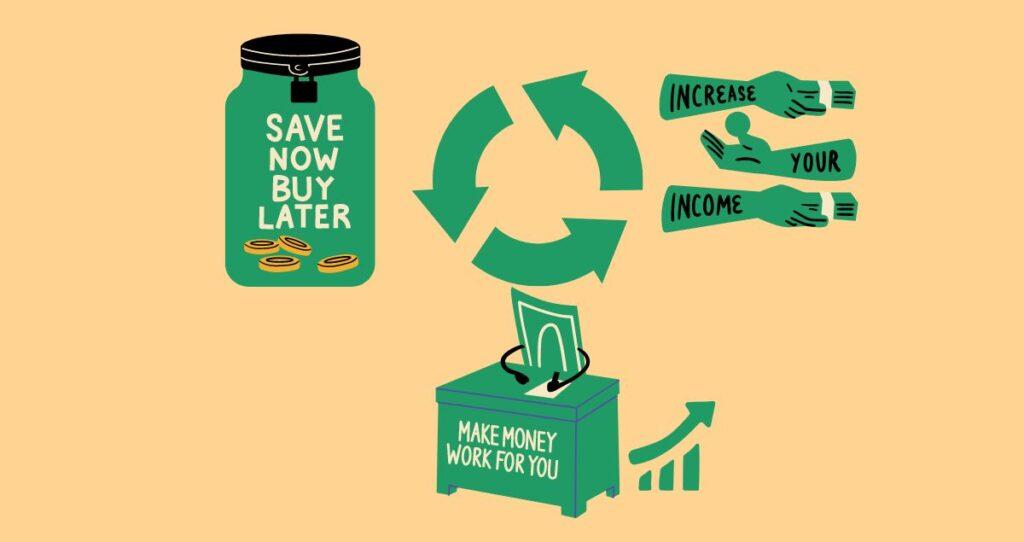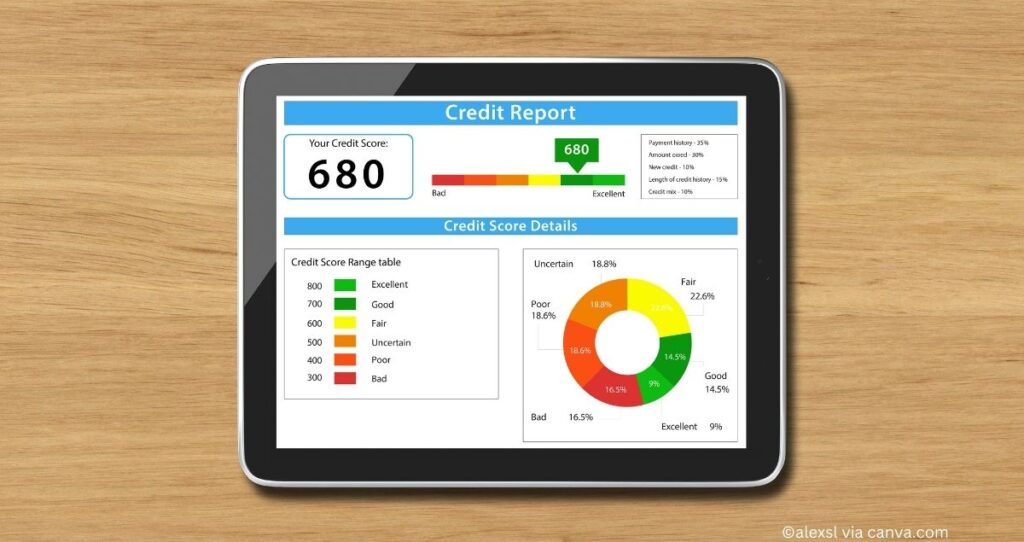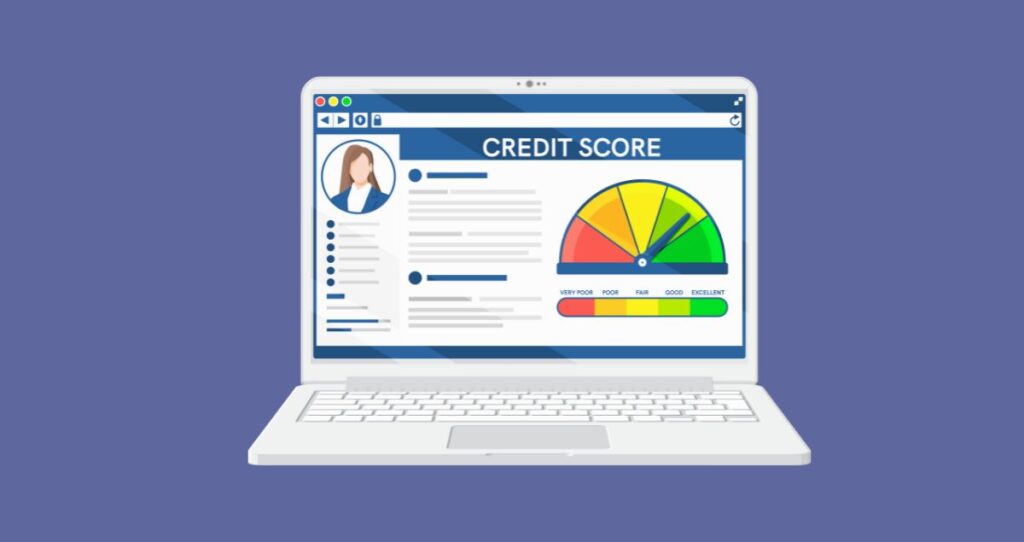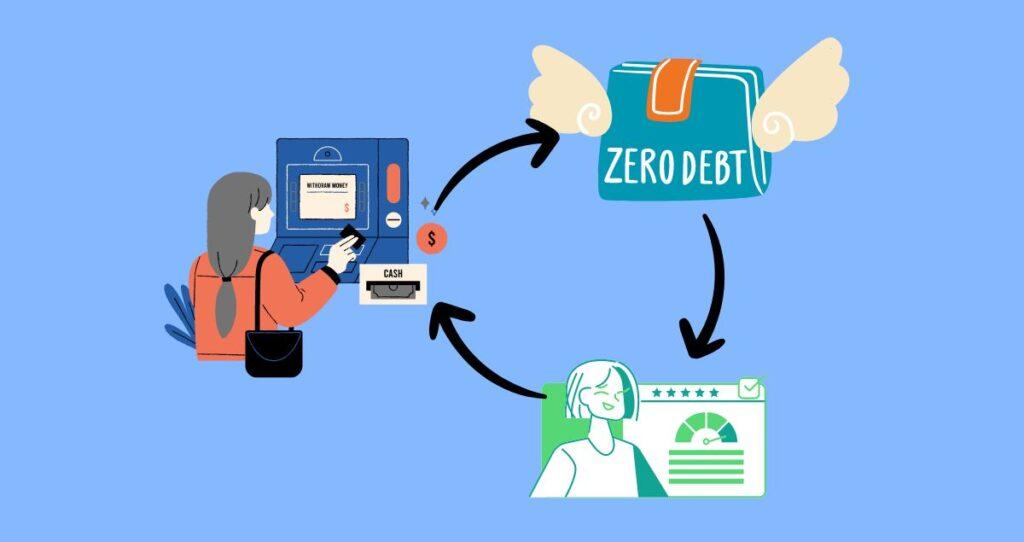Have you been seeing your credit score drop for no reason? Your credit score is a number that ranges from 300 to 850 on the credit score chart. This number represents your financial history and is therefore affected by money decisions you make daily. If your credit score suddenly drops, it can be due to several reasons, which we will discuss in this article.
For example, if a late payment is reported on your credit reports, your credit score will drop many points. Your credit score could also drop if your credit utilization went higher, you applied for a loan or closed a credit account. In this article, I will show you why your credit dropped for no reason and tips to raise your credit score fast.
Without further ado, the following are reasons your credit score suddenly dropped for no reason.
1. Your credit score dropped because of a late payment on your credit report
Payment history is the most significant factor impacting your credit score, accounting for 35% of your FICO score and 40% of your VantageScore. A single late payment can drop your score by more than 100 points and will remain on your credit reports for 7 years.
If your credit score dropped suddenly for no reason, especially by many points, it is possible that a late payment was reported on your credit reports. To determine if a late payment is on your credit reports, get a free copy of your annual credit reports from each major credit reporting agency (Equifax, TransUnion, and Experian). If a late payment was mistakenly reported, resulting in your credit score being dropped, dispute it with the credit bureaus and/or the lender that reported it.
Paying your bills on time is a great way to improve your credit score and maintain a clean credit history. Here are tips for maintaining a good payment history and avoiding a sudden drop in credit scores.
- Pay your bills before the due date for each credit account listed on your credit reports.
- Don’t carry balances on your credit cards and similar revolving credit accounts.
- Establish payment reminders
- Enroll in auto-pay to avoid missing a payment, especially if you have a busy schedule.
- Get out of debt fast.
Read more: How Does Payment History Affect Credit Score?
2. Your credit score dropped due to a mistake made in your credit report
Sometimes, mistakes will appear in your credit report due to inaccurate reporting. If this happens, your credit score will drop, and the points your credit score drops will depend on the information reported. For example, if a bankruptcy was mistakenly reported in your credit report, your credit score can drop up to 200 points.
For this reason, you must maintain a clean credit report by disputing errors and inaccuracies to credit bureaus and lenders. If you have bad credit, cleaning up your credit reports can quickly increase your credit score. I created a quick guide for disputing errors in your credit reports, and you can read it here.
Related: Credit Report Overview: Everything you need to know
3. Your credit score is going down due to a foreclosure
You will default on the loan when you get a mortgage and can no longer afford to make your monthly payments. The lender will then take the house in foreclosure and sell it at an auction to recover the unpaid balance. Losing your home in foreclosure is just the beginning of loan-term financial struggles.
One of the biggest effects of foreclosure is that it wrecks your credit and drops your credit score by as much as 180 points. The foreclosure will also remain on your credit reports for up to 7 years. If your credit score dropped for no reason, it might be due to the foreclosure reported on your credit reports.
To avoid foreclosure and prevent your credit score from dropping by hundreds of points, try one of the following financial tips when you cannot keep up with your monthly payments.
- Reach out to your lender as soon as you start falling behind
- Ask for different payment options, such as lowering your monthly payments
- Get support from a HUD-approved housing counseling agency in your area
- Sell the property ahead of time
- Consider a short sale
- Try a deed-in-lieu of foreclosure, which allows you to surrender the property’s title to the lender without going through the foreclosure process.
- Refinance your loan to a cheaper loan.
- When buying a house, put down a larger down payment to lower your debt balance and raise your credit score, which will qualify you for a lower interest rate.
Check out the following extra mortgage tips
- Can I give my house back to the bank to avoid foreclosure?
- How to avoid foreclosure on a home?
- How does a foreclosure affect your credit?
4. Your credit score is going down due to bankruptcy
If your credit score drops more than 100 points, you might be experiencing bankruptcy. Bankruptcy is one of the many negative items on credit reports and drops your credit score the most compared to other factors affecting your credit score.
Bankruptcy is a legal process you can initiate when you cannot repay your debts or your bills. This process gives you a fresh start but leaves a big mark on your credit history. Check out different types of bankruptcy and how each will affect your credit. Bankruptcy can quickly drop your credit score by up to 200 points and will remain on your credit reports for up to 10 years.
If your credit score suddenly drops due to bankruptcy, try these tips to rebuild your credit after bankruptcy and repair your credit.
5. Your credit score dropped for no reason because you recently applied for credit
Your credit score is decreasing because a hard inquiry appeared on your credit reports. Hard inquiries directly result from loan applications such as credit card applications or other loans such as personal loans, car loans, or mortgages.
Before a lender approves you for a mortgage or loan, they will run a hard pull on your credit report. That is when the lender requests your credit profile to view your credit score and other current loans. This is also done to examine your DTI ratio; another factor lenders use to qualify you for loans. Generally, a hard inquiry drops your credit score by 5 to 6 points on average, and they account for 10% of your FICO score.
While a hard inquiry drops your credit score, its effect will fade until it can no longer affect your score. Typically, a hard inquiry stays on your credit reports for 24 months but does not affect your credit score after 12 months. Your credit score will also rebound quickly if you do not have other activities that can drop it further.
Related: How Long Do Hard Inquiries Stay On A Credit Report?
6. You maxed out on your credit limit
Your credit score is going down because you maxed out your credit limit. Are you using your credit cards excessively or faster than paying them off? If so, this could be why your credit score dropped for no reason, as a higher credit utilization lowers your credit score. Typically, credit utilization accounts for 30% of your FICO score and 20% of your VantageScore.
Your credit limit is the amount your credit card provider allows you to spend on the card. Once you spend all of it, you must pay some back before using the card again, which is why credit card debts are considered revolving. Your credit utilization is the amount you spend compared to your total credit limit. Spending too much of your credit limit results in higher credit utilization, which, in the end, lowers your credit score.
The secret for using credit cards is to use them for expenses you have cash to pay for and use that cash to pay them off in full every month. This credit card strategy prevents you from carrying balances on your credit cards or paying expensive interest charges on your cards. Keep your credit utilization under 5% to maintain a higher credit score, especially if you want an 800 credit score.
You might also like the following credit score tips.
- How can you get an 800 credit score the easy way?
- What is the best credit utilization ratio?
- What happens when you carry a credit card balance?
7. Your credit score dropped for no reason because you closed your credit card account
Did you recently close a credit card account? Closing a credit card account can suddenly drop your credit score, as it might increase your credit utilization or weaken your credit mix. For example, let’s say you have three credit cards with $1,000 in credit limit each. Your total credit limit, in this case, is $3,000.
Before canceling your credit card, you have used 50% ($1,500) of your total credit limit. Then, you decided to cancel one credit card. After canceling one credit card, your new credit limit will be $2,000.
Your new credit utilization based on the updated limit is no longer 50%. Instead, it is 75%. That is, your credit utilization jumped from 50% to 75%. Increased credit utilization can quickly drop your credit score because it shows you heavily rely on debt to finance your lifestyle.
8. You no longer have a good credit mix
Lenders see you as a great credit handler if you can manage credit of all kinds. Having a good credit mix is a great way to showcase your ability to manage different types of loans. A good credit mix is usually made of installment loans such as car loans and mortgages and revolving credit such as credit cards and HELOCs. If your score suddenly dropped, it is possible that one of your credit accounts was recently elected from your credit reports.
This could be due to several reasons, but common ones include canceling a credit account or paying down one of your accounts. For example, making the last mortgage payment could result in a drop in your credit score as the account will no longer be active on your credit reports, weakening your credit mix.
